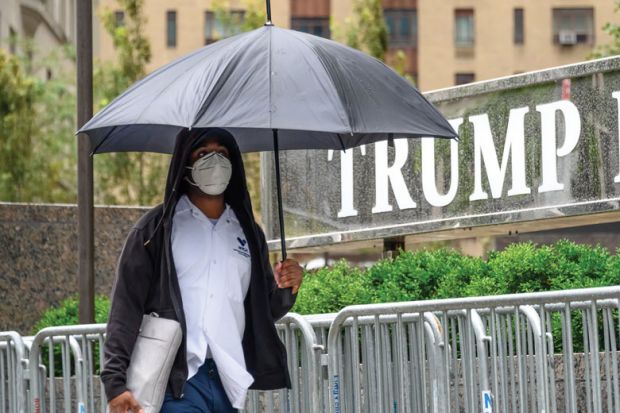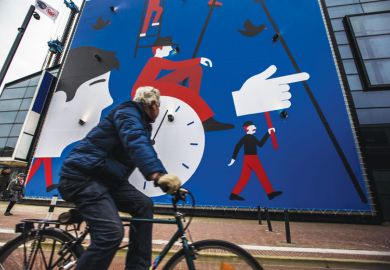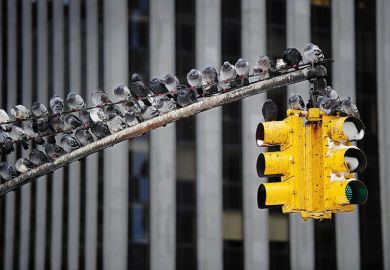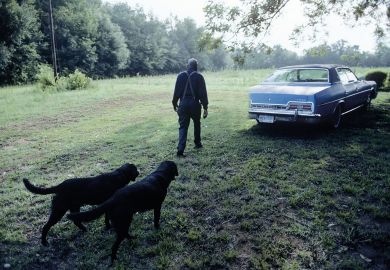Academics are turning down job offers from US universities owing to concerns over the country’s handling of the pandemic, draconian immigration policies and increasingly competitive academic climate.
Dan Warren, a biology researcher at the Senckenberg Biodiversity and Climate Research Center in Germany, told Times Higher Education that he and his wife, who is also an academic, had been looking for permanent tenure-track jobs in the same city for 10 years.
But when he was finally offered a tenure-track position at a US university in July, which included the prospect of an equivalent role for his wife, he turned it down “in part because we were worried about moving back to the country we were both born in”. Dr Warren’s wife is based at the Okinawa Institute of Science and Technology in Japan.
“Moving to the USA felt like buying a house that is currently on fire,” he said, referencing the state of the pandemic in the country combined with its lack of a national healthcare system.
Dr Warren, who is a US-Australian dual citizen, added that the academic climate in the country “was a major source of concern for us and factored pretty heavily in our decision”.
“Getting a tenure-track job in the US…is starting to feel more and more like buying a lottery ticket for tenure,” he said. “These days everything is so competitive. You must have world-class research, while teaching constantly and running a big lab. But even if you do all of that, your ability to get tenure is often contingent on your ability to get competitive funding in a country where the funding pool is just dwindling and dwindling.”
Meanwhile, a European scholar based in Ireland who had accepted a job at the University of Wisconsin-La Crosse in May subsequently rejected the offer in July, saying that “a move to the US is now and for the foreseeable future too risky for my family”.
“The way that the US Federal Government is handling the crisis of the Covid-19 pandemic, the troubled economy, the negative prospects for higher education and the continual changing rights of immigrants in the United States, are gravely concerning to us,” the academic, who wished to remain anonymous, said in an email to the institution.
He added: “I am not turning down this job because I have found a more suitable job. Renouncing this job and our chance to move back to the US is also very risky, as my contract ends in December and I don’t have anything else lined up. However, staying put and possibly moving into a non-academic job seems less risky, all things considered.”
A tweet including a screenshot of the email, shared by Ross Vander Vorste, assistant professor of biology at University of Wisconsin-La Crosse, who had hired the scholar, received 23,500 likes and 8,100 retweets.
Dr Vander Vorste, who said it was now uncertain whether he would be able to readvertise the position, suggested that “one reason that tweet really blew up is because…their story really exposed something that people are concerned about”.
“I feel like the US used to be seen as a holy grail for academic jobs. Finding a tenure-track job in the US was very desirable for people outside the US. I think that’s changing and that’s scary to me and frustrating to me because, ultimately, I think that’s going to hurt our higher education system in the long run,” he said.
POSTSCRIPT:
Print headline: US no longer ‘holy grail’ for university jobs
Register to continue
Why register?
- Registration is free and only takes a moment
- Once registered, you can read 3 articles a month
- Sign up for our newsletter
Subscribe
Or subscribe for unlimited access to:
- Unlimited access to news, views, insights & reviews
- Digital editions
- Digital access to THE’s university and college rankings analysis
Already registered or a current subscriber?








